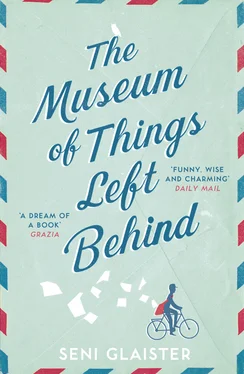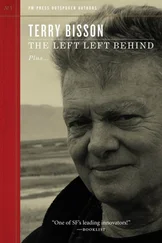Signor Posti piped up – somebody was clearly expected to respond to this challenge. ‘With respect, sir, we’re not anticipating any difficulty at re-election. The mood of the nation is good, we have positive news to report, we’re expecting less than a handful of negative option returns, and I can probably tell you who will be responsible for those …’
‘Well,’ countered Sergio slowly, fathomless contempt dripping from every syllable, ‘I keep my ear a little closer to the political ground than you do, Signor Posti, and I think you overestimate the mood of the electorate.’
Rolando Posti examined his fingernails and waited for another voice to fill the considerable chasm the president’s words had left in the air.
‘So,’ ventured Rossini, after a prolonged and painful silence, ‘what are you suggesting? That we cancel the Big Celebration?’
‘Cancel the—’ spluttered Sergio. ‘Are you mad? I hope you’re substantially more skilled at healing the sick than you are at managing political unrest. No, I’m suggesting that we replace the Big Celebration with a spontaneous outpouring of jubilation.’
‘Spontaneous?’ echoed at least half of the gathered men.
‘Yes, I want a party organized by the people, for the people, on the spur of the moment.’ Sergio looked around him, as if this was the most obvious idea he had yet put forward. It was clear from a dozen blank stares, however, that he needed to enlighten them further. ‘That way, if the party is a disaster, it will be the fault of the electorate. If it is a success, it will be our triumph for providing an atmosphere conducive to the flourishing of such impulsive festivity. I want our visitor to witness a nation that can literally burst into merrymaking.’
The men kept their eyes firmly on the president for fear that a shared glance between one and another might constitute betrayal.
‘And,’ ventured Civicchioni, tentatively, ‘who would you like to, er, spearhead the spontaneity?’
Impatient at the stupidity of the question, Sergio responded, enunciating each word as if addressing a particularly stupid child, ‘The committee, of course. Do you think I’d leave something as important as this to chance?’ He snapped shut his notebook, pushed his chair back and, with exaggerated irascibility, flounced from the room.
Angelo turned to a clean page in his notebook. ‘Right, gentlemen, you heard the boss. A spontaneous outpouring of jubilation it is.’
‘And don’t forget to schedule some merrymaking,’ quipped Scota, but Angelo silenced him with a look, reminding them that merrymaking was no joking matter. The men continued to sit and talk, each individually wishing to honour his president’s demands and to take the instruction seriously, but each also knowing that what had been asked of them was both illogical and impossible.
CHAPTER 10
In Which a Royal Visitor Arrives
The VIP was due to arrive on the 05.05 freight train, the only one to stop in Vallerosa. The track actually serviced a major network that began in the French Alps to the south-west and ended in Austria to the north-east and managed, through the judicial placing of a mountainous outcrop, to carve a narrow route through the uppermost corner of the country. This meander across Vallerosan soil lasted less than three kilometres, but the government of the time, led by Sergio’s canny grandfather, had been quick to recognize the opportunity: it had granted permission to the rail company to lay the track across a corner of its land. In return the rail company would provide, at their cost, a station and a generous annual stipend with which to manage it. At the time, the deal had been heralded as an international negotiation of unparalleled success, and many days of celebration and festivity had followed. Sergio’s grandfather had earned himself the nickname ‘the Deal Maker’, and had justly garnered the praise of his fellow citizens, who now had access to and from other countries. The Deal Maker, however, was not blessed with the wisest of financial counsel, and while the fee paid by the rail company had seemed a grand gift from the heavens, the incumbent minister of finance had failed to negotiate an annual increase in line with inflation or any other monetary index. Over the intervening decades the annual income had been eroded by the ravages of economics, and today the stipend barely covered the wage of the part-time ticket collector.
Whether it was a reflection on the retrospective change of circumstances, or the genuine linguistic trickery that often takes place when a name is translated from one language to another, via Latin, and back again, Sergio’s grandfather was remembered now in the history books as ‘the Big Deal’; the ambiguity of the moniker suited those with a fond, ever-patriotic nostalgia for the previous regimes as well as those who remembered less kindly the deals with which the country was now lumbered in perpetuity.
Three times a day the diesel would roar through Vallerosa, accelerating as it drew towards the station. Curving dangerously as it sped past, the passengers on board might just glimpse the short platform and the black and red flag snapping in the train’s draught. Since the mid-1940s, the passenger trains had no longer stopped in Vallerosa, and this arrangement suited the current administration. While civilization had mercifully ignored or forgotten the small country during two world wars, today’s increasingly unstable climate would have required the opening up of rigorous border patrols, including a full-time Customs and Immigration Service.
Demand for travel to the country was negligible and as no one in the world had yet come up with any particular reason to visit Vallerosa, the current traffic was restricted to a single freight train stopping once a day. Upon this service, the occasional visitor might have negotiated a fare and, depending on the amount of currency that changed hands, take their chances with a seat among the parcels and packages in the mail carriages or secure a much comfier ride in the driver’s cabin, where there were two springy fold-down chairs and copious amounts of tea from the seemingly bottomless urn. From there visitors would alight, crumpled, disoriented and in desperate need of the washrooms that waited, spotlessly clean, to service them.
The current stationmaster, Gabboni, relished his dual role as ticket and passport inspector. Indeed, he had one of the most enviable roles in the country. Admittedly he must be up early to greet the train each morning, but for most of the time he lived a relaxed and solitary life, tasked with keeping the station platform swept, the toilets and washrooms stocked with paper and towels, and ensuring there was always a glorious display of hanging baskets and window boxes to guarantee that one’s very first sighting of Vallerosa was a positive experience.
Each year several intrepid travellers would deliberately set out to discover this most elusive of countries for themselves and Gabboni dedicated himself to welcoming them. On the whole, this group was made up of hikers and mountaineers, historians and students of General Isaak von Bunyan, explorers, cartographers and tea connoisseurs, who had heard talk of rare flavours and properties of the local brew. But there were many more whose visit was entirely accidental. Typically, these weary travellers would have embarked on a night train somewhere in the pretty hills of the north-east of Italy, or as far back as the south-eastern tip of France, and would have awoken suddenly, confused, to the screech of the diesel brakes and a neck-jerking deceleration. They would shake themselves awake to the incomprehensible realization that they were pulling into a station, although they had been told, in many multilingual announcements, that there were no further stops along the way. Leaping to their feet, hastily grabbing their luggage from the rack above their head, they would hurl themselves and their cases from the train on the false assumption that either they had slept through the country they were intending to visit or they had arrived at their destination slightly ahead of schedule.
Читать дальше












